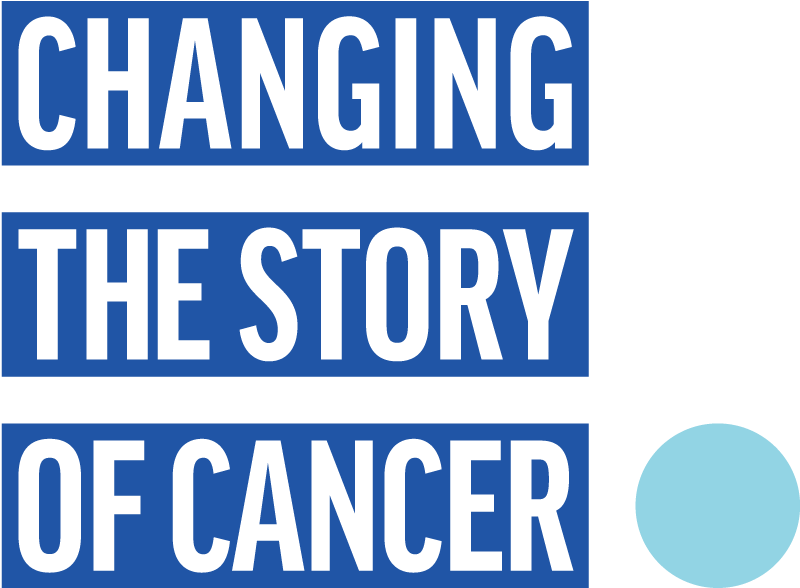CAMBRIDGE CANCER RESEARCH HOSPITAL NEWSLETTER
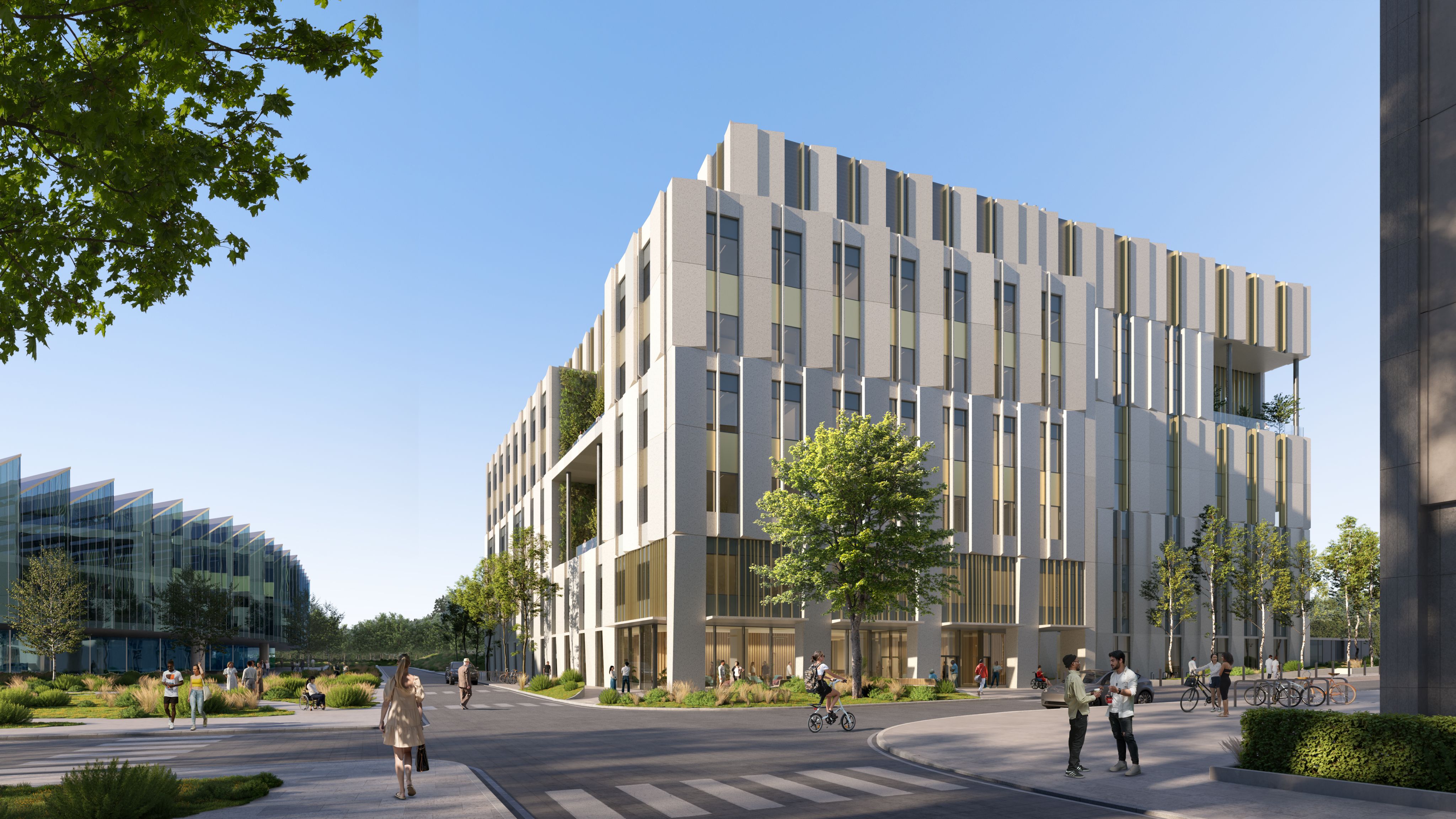
An update on the project
We are delighted that Cambridge Cancer Research Hospital was included in the Government's recent announcement on the New Hospital Programme, which confirmed that our plans for the project can proceed.
We await final sign off of our Outline Business Case, which sets out the vision, benefits and value for money that Cambridge Cancer Research Hospital will bring. You can read our full update here.
As we approach a busy summer, we look forward to appointing a construction partner for the next phase of the project. We also expect a decision on our recent planning application to Cambridge City Council in the coming months. Construction of the seven-storey, state-of-the-art facility is set to start in 2024.
We are continuing to work closely with our patients, families and staff, as well as engaging with organisations, communities and individuals across the region who are contributing ideas and giving feedback on our plans and design, to ensure the hospital suits the needs of all those who may need to use it when it opens.
In recent months, we have engaged with Healthwatch Forums across the county, Think Communities, the Armed Forces Community, the Cambridge Cancer Help Centre and the Women’s Health Project, among others. If you are part of a community group or organisation and would like an opportunity to hear more about our plans for Cambridge Cancer Research Hospital, please do get in touch hello@cambcancer.org.uk
Our project team recently visited Clatterbridge Cancer Centre in Liverpool to hear about their experiences and learning from moving into a new building in 2020, which you can read more about below.
We continue to progress our exciting plans for Cambridge Cancer Research Hospital and look forward to turning these into reality.
CCRH project team
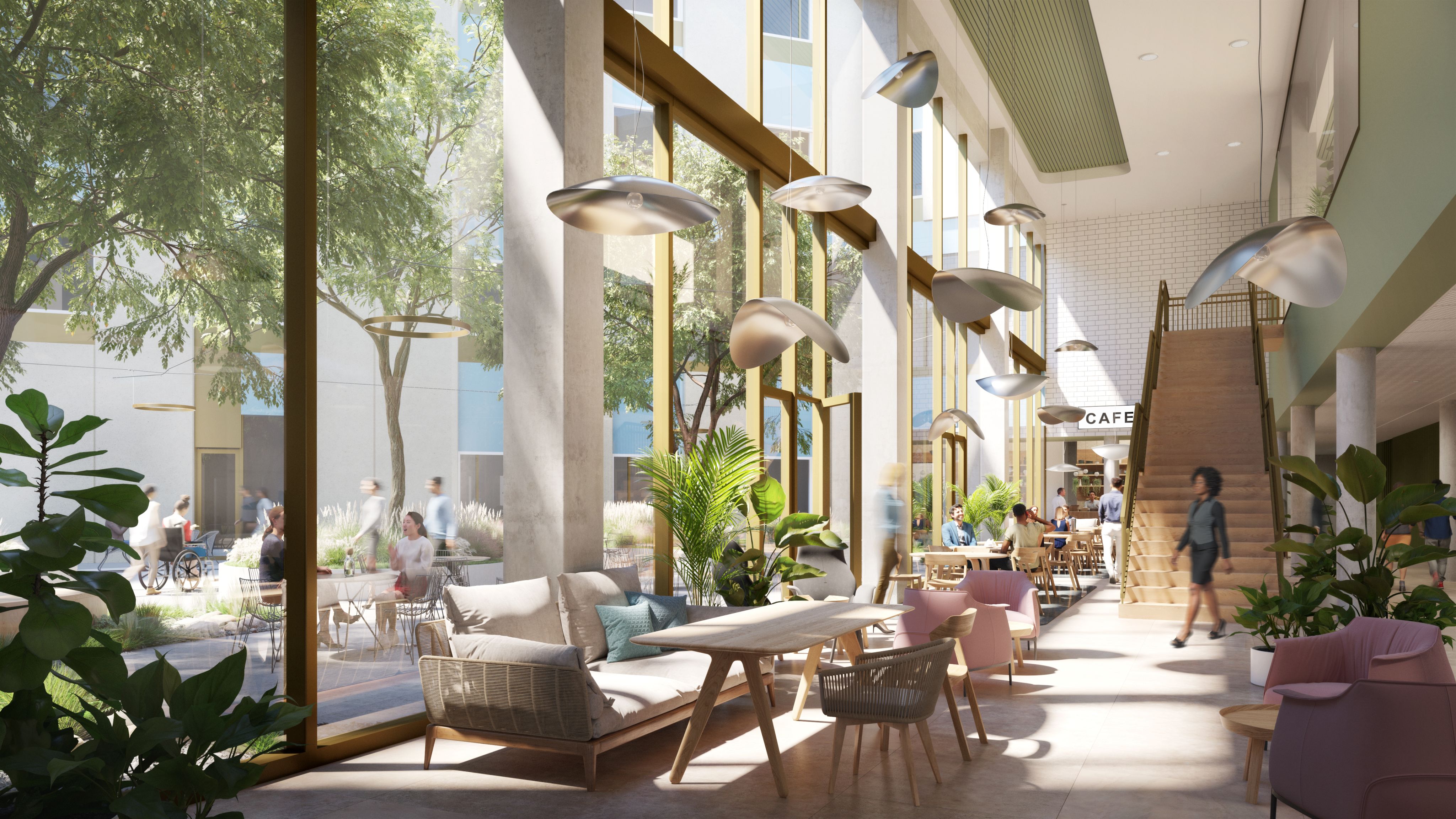
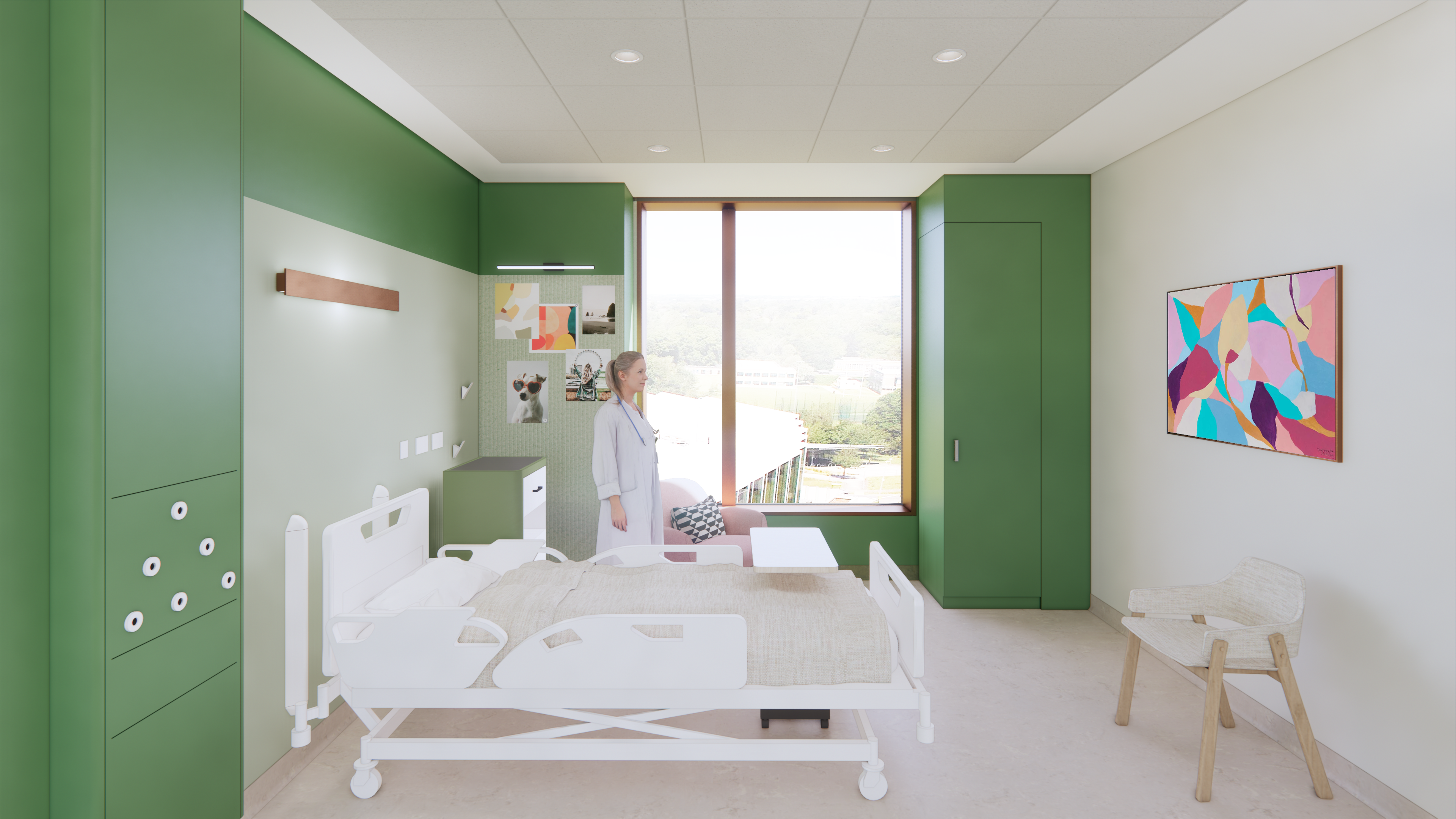
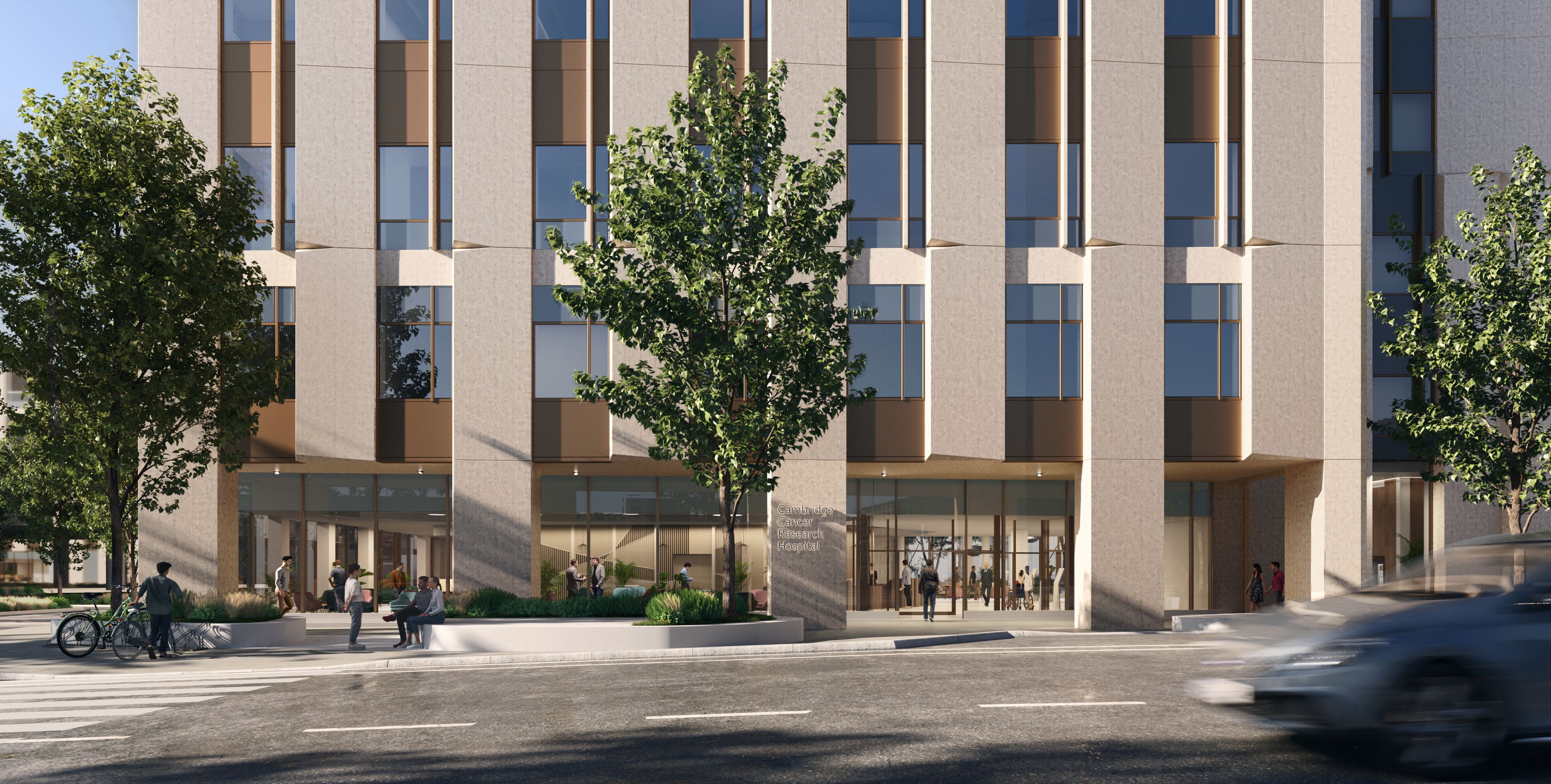
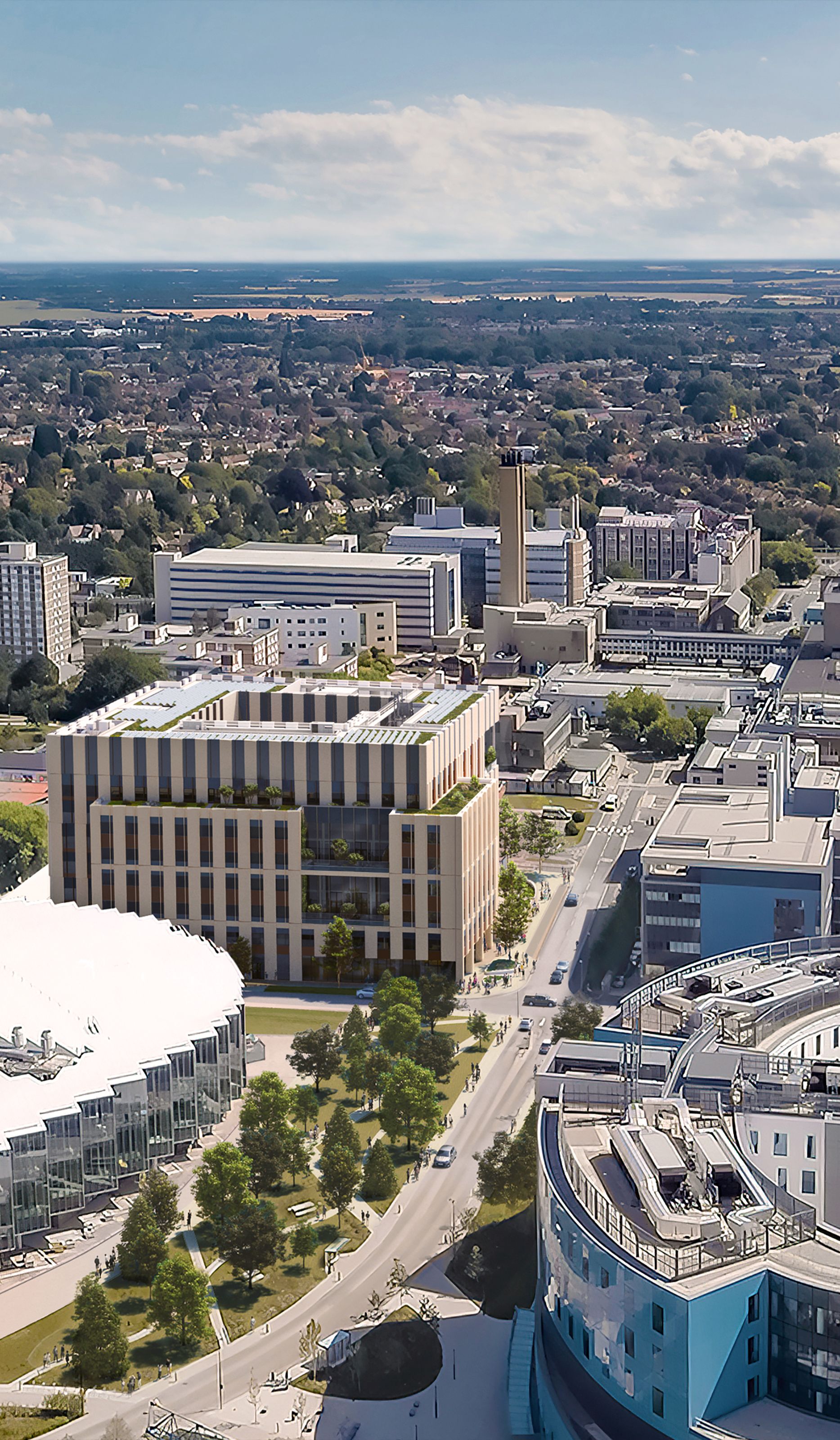




LESSONS SHARED IN LIVERPOOL
Hannah Brown, Macmillan Lead Nurse at Cambridge University Hospitals NHS Foundation Trust shares her account of a recent trip to visit Clatterbridge Cancer Centre in Liverpool.
In March, members of the Cambridge Cancer Research Hospital project team, our Patient Advisory Group co-chair and I met NHS colleagues at the Clatterbridge Cancer Centre in Liverpool, to learn about their move to a new building in 2020 and how their models of delivering cancer care had transitioned into reality.
Clatterbridge has a unique multi-site care model serving the 2.4 million population across Cheshire and Merseyside and is consistently rated by patients as one of the best performing hospitals. The services provided in the 11-storey building include chemotherapy, immunotherapy, bone marrow transplant, gene therapy and radiotherapy services. The Centre also includes diagnostics and imaging, outpatients, day-case treatments, a teenage and young adult unit, clinical therapies, and a wide range of cancer information and support.
It was an insightful visit and we covered more than we were hoping for, including programme management, workforce planning, and how they integrated digital and wayfinding around the hospital. The model of care in some areas has evolved since they moved in and the Clatterbridge team were very generous in sharing their learnings with us and answering our many questions! Some areas have moved to an ambulatory model of care, where services can be delivered to outpatients, to avoid people staying in hospital unnecessarily.
They also shared their experience of moving hundreds of staff and all of their services into a brand new building, which is a huge challenge to do at the same time as continuing to deliver a high standard of care. Learning from other NHS teams who have successfully completed a project to build and work in a new cancer hospital is incredibly helpful and will help us during the Full Business Case stage and beyond.
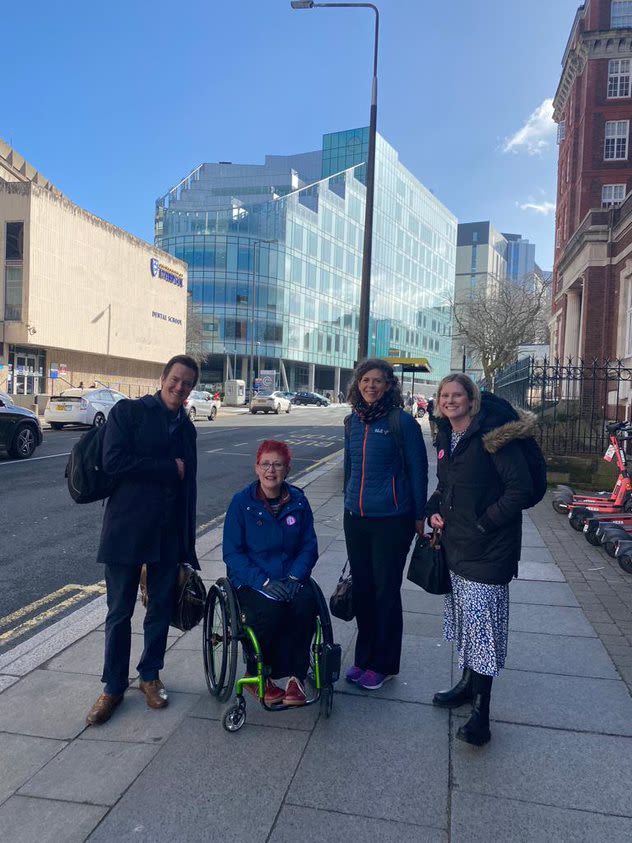
Members of the CCRH project team outside Clatterbridge Cancer Centre
Members of the CCRH project team outside Clatterbridge Cancer Centre
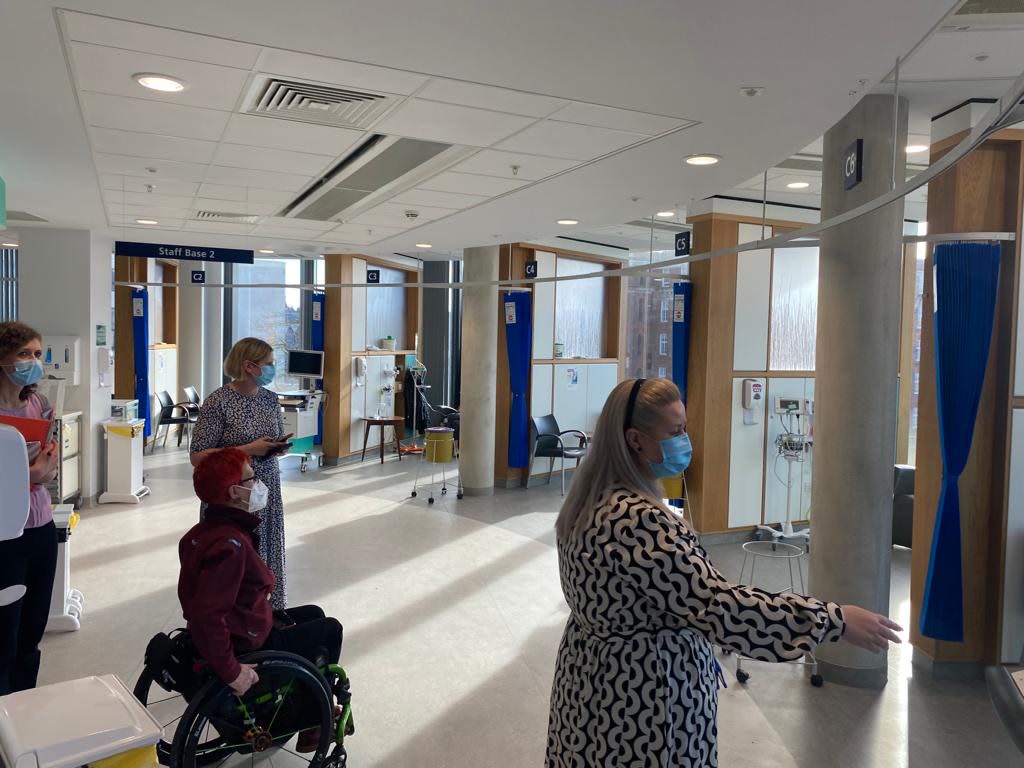
Inside the Clatterbridge Cancer Centre
Inside the Clatterbridge Cancer Centre
A BIG NATURAL COLOUR CHART
Spending a lot of time in hospital can leave people feeling disconnected from the natural world – from natural light, from the rhythms of night and day, from the changing seasons, and from natural colours, forms and textures. While the vital connection between the natural world and our wellbeing is deeply felt, it can be difficult to achieve in clinical environments.
In a recent project funded by Addenbrooke's Charitable Trust, CUH Arts ran a series of workshops with cancer patients and staff to explore colour in the local flora and fauna through the lens of cancer care. These were run in partnership with artist Mia Sylvia, writer Hannah Jane Walker and the University of Cambridge Museums.
The results of these workshops are now on display at Addenbrooke's, in a stunning exhibition called 'A Big Natural Colour Chart', by Mia Sylvia, which shows pieces of material dyed from locally foraged plants. The colour palette in the exhibition will provide inspiration for future arts commissions in Cambridge Cancer Research Hospital.
You can find the exhibition on the corridor between the concourse at Addenbrooke's and the Addenbrooke's Treatment Centre.
Listen to our CUH Arts Team
Natalie Ellis and Ellen Nowak from the CUH Arts team were recently interviewed on the CRUK Cambridge Centre podcast, focusing on how arts can support cancer care. You can listen back here.
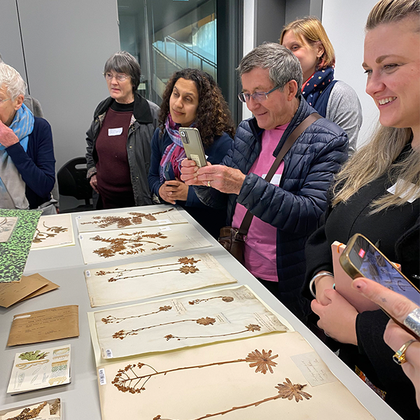
Patients and staff at the CUH Arts workshop
Patients and staff at the CUH Arts workshop
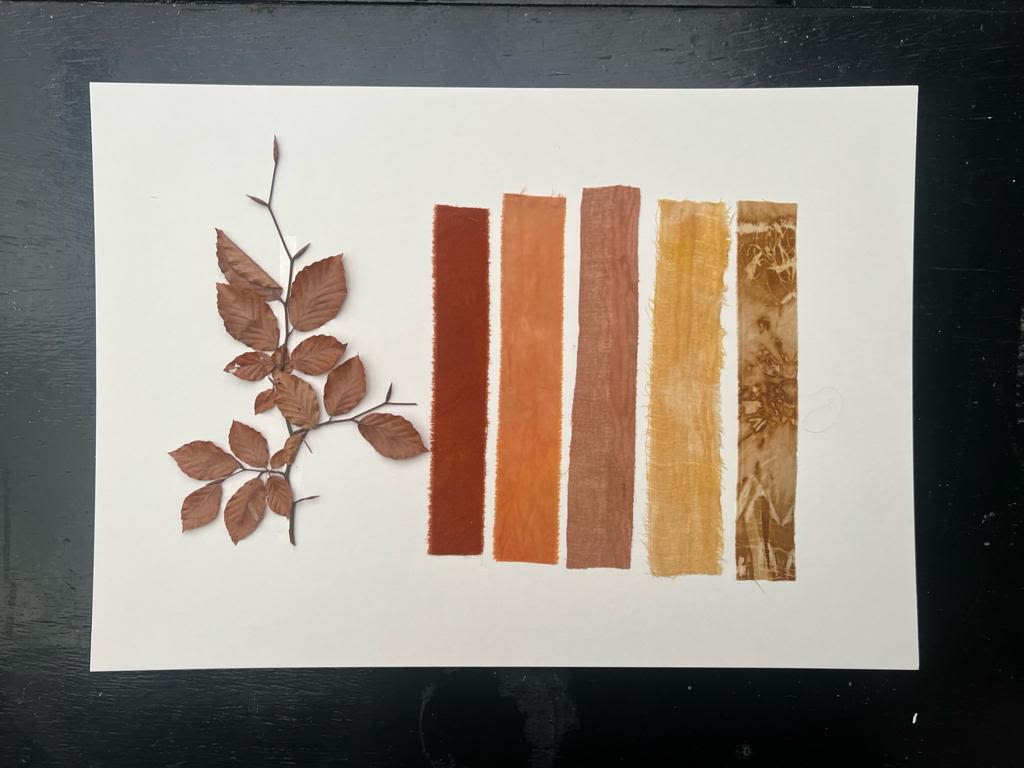
One of the exhibition pieces
One of the exhibition pieces
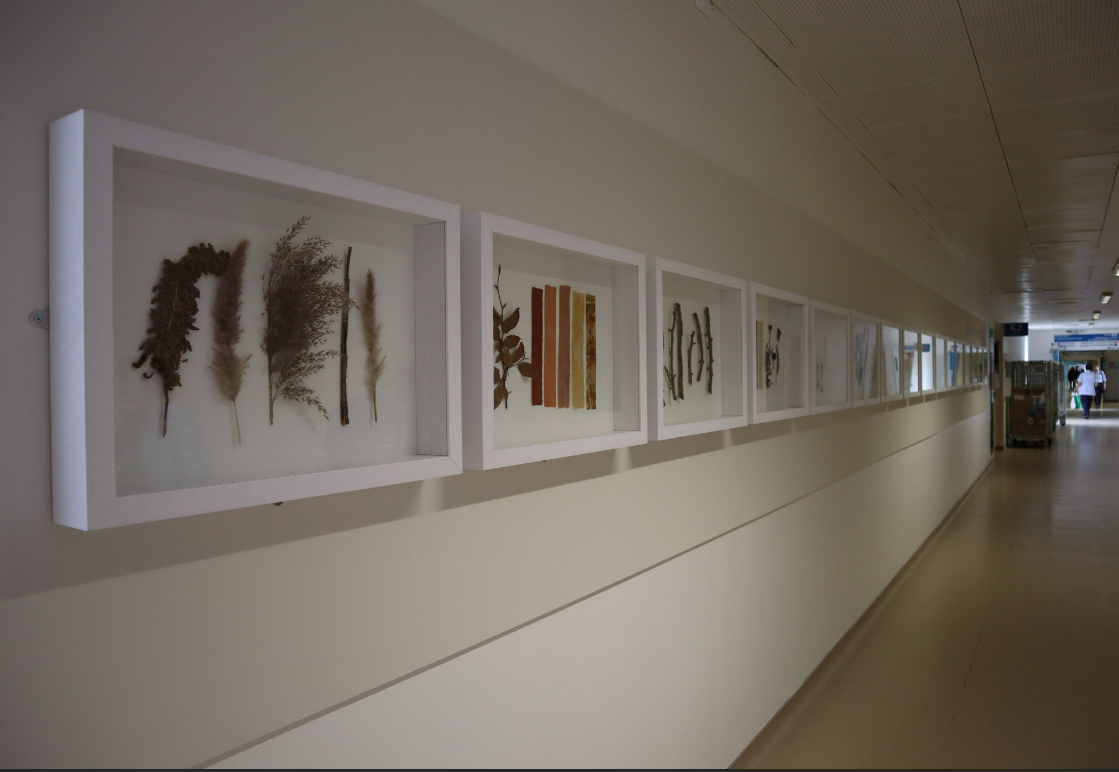
'A Big Natural Colour Chart' exhibition
'A Big Natural Colour Chart' exhibition
CRUK Cambridge Centre podcast
The third part of the CRUK Cambridge Centre's podcast series 'Integrated Cancer Medicine: Research in Focus' has been released, and you can listen to all the new episodes here.
You can also watch a video about the CRUK RadNet Cambridge ‘Timeline of Radiotherapy’ display which is currently on display in the Radiotherapy Department at Addenbrooke's.
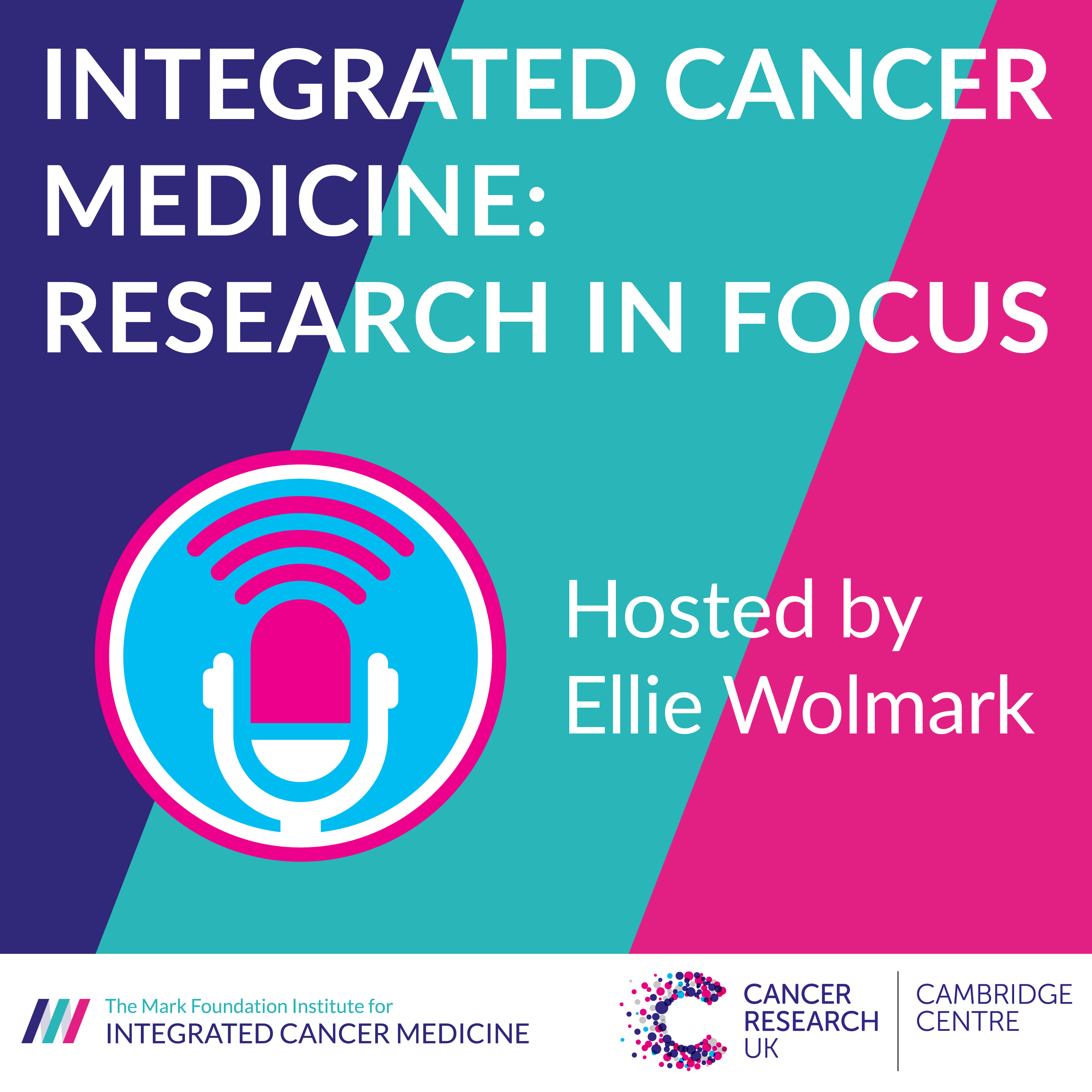
FUNDRAISING HUB
With your help we are changing the story of cancer
Addenbrooke's Charitable Trust (ACT), our hospital charity, has a new fundraising hub in Oncology in Addenbrooke's. This dedicated space will allow ACT to engage with patients, families, friends and staff to raise awareness of the new Cambridge Cancer Research Hospital, promote fundraising and donating, and share ways people can support Cancer services today and in the future.
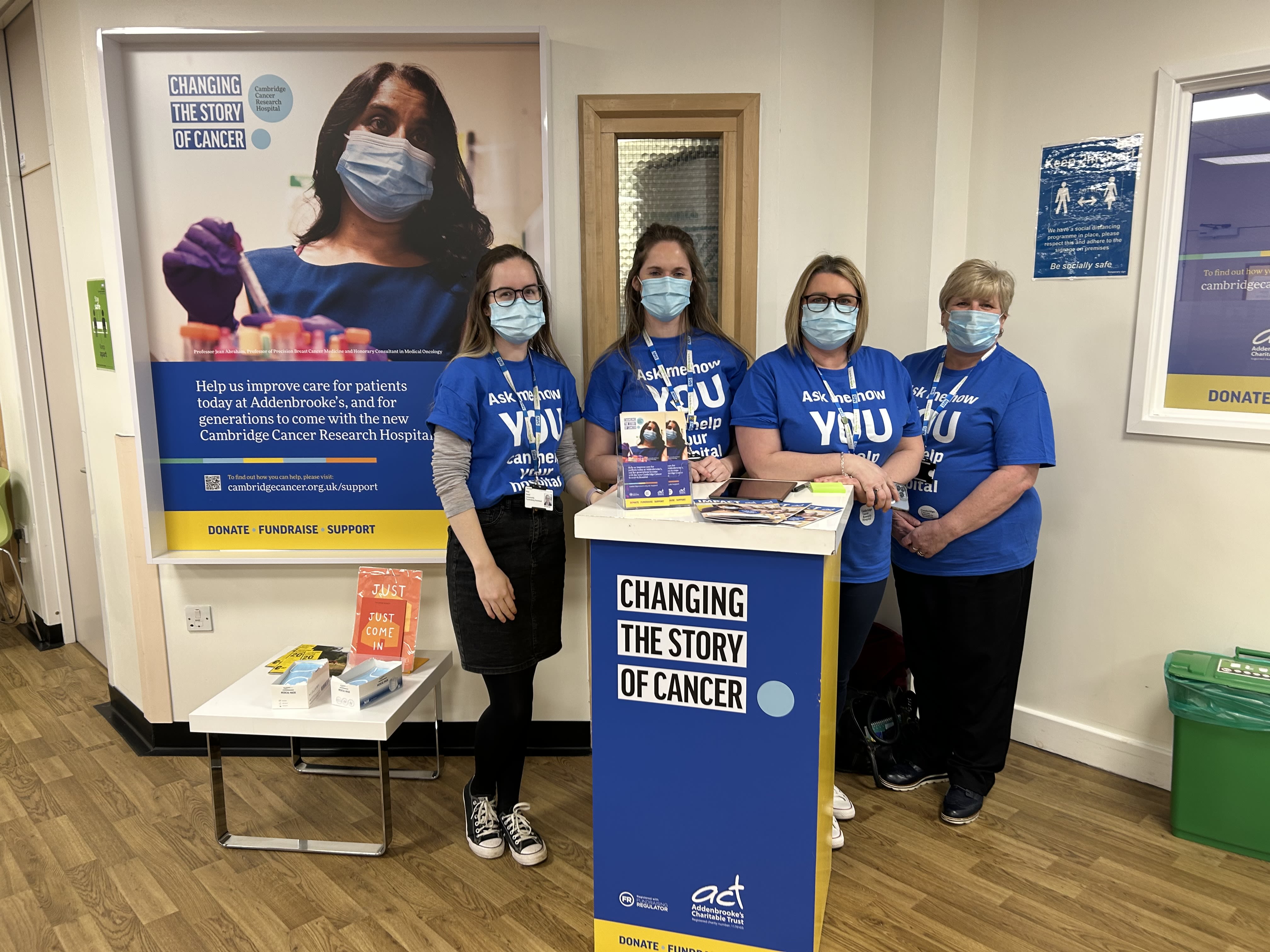
The ACT team at the Hub
The ACT team at the Hub
Staff and/or volunteers will be at the Hub on certain days of the week, to chat with patients and staff.
Everyone in Oncology has been really helpful and positive in the first few weeks since the Hub opened and the ACT team look forward to chatting to more patients and staff in future. Please do come and say hello if you are at Addenbrooke's.
If you have any questions, would like more info about the Hub, are interested in volunteering for us, or want to find out how you can fundraise, please contact ACT at fundraising@act4addenbroookes.org.uk or visit www.cambridgecancer.org.uk/support to donate.
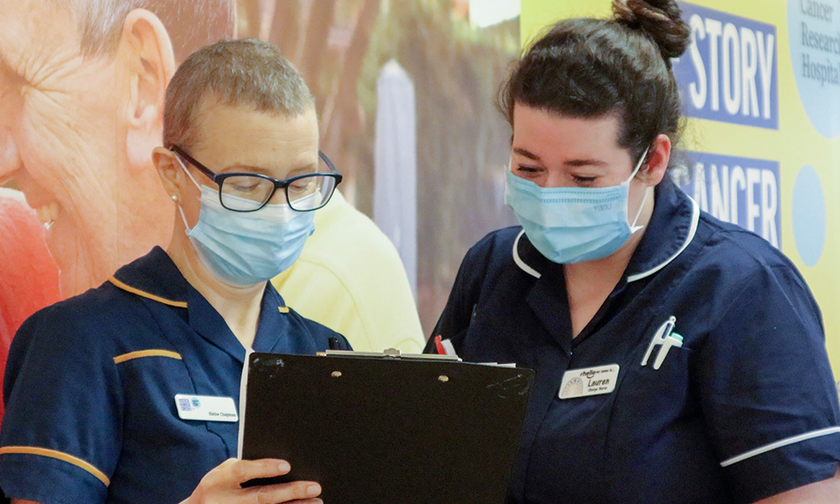
Elaine with a cancer nurse at Addenbrooke's Hospital
Elaine with a cancer nurse at Addenbrooke's Hospital
Meet Elaine Chapman, our Lead Advisory Nurse
Elaine began her cancer career working as an oncology nurse at Cambridge University Hospitals (CUH) in 2000, where she gained skills in giving chemotherapy.
She then progressed across a number of roles at Addenbrooke’s and was appointed the hospital’s Lead Cancer Nurse in 2014, before taking on her current position as Lead Advisory Nurse for Cambridge Cancer Research Hospital.
“I see my role almost like a bridge, recognising what will be in the new hospital and sharing this with patients and staff to ensure our services work practically, as we combine research and clinical practice into one building.”
You can find out more about Elaine and her role in the video, and also on our website here.
Latest cancer news from Addenbrooke's, The University of Cambridge and The CRUK Cambridge Centre
Thea's story: finding new treatments for stomach cancer
Thea Towell has stomach cancer and is taking part in research at Addenbrooke's to find new treatments and help other patients in the future.
Speeding up breast cancer diagnosis using AI
A ground-breaking project involving Addenbrooke's has been awarded £1.5 million to develop AI that can help check for breast cancer - part of the government's plan to accelerate cancer diagnosis using artificial intelligence.
Cambridge Professor receives OBE for services to cancer
Professor Rebecca Fitzgerald, director of the Early Cancer Institute, has received an Officer of the Order of the British Empire (OBE) for services to cancer.
Cambridge start-up wins funding to develop new diagnostics
Cambridge start-up SMi and its research partners have received two Innovate UK awards to progress their work on testing for infectious diseases and detecting biomarkers for cancer.
The women helping to change the story of ovarian cancer
Catch up with some of the women at the centre of pioneering research that’s helping to change the story of ovarian cancer.
Academy of Medical Sciences funds emerging research leaders
Mireia Crispin-Ortuzar, Ovarian Cancer Programme co-lead at The CRUK Cambridge Centre, receives a Springboard Award to help unravel treatment response patterns in ovarian cancer.
Multi-million investment in early cancer tests
The Cambridge team behind Cytosponge - the 'sponge on a string' which identifies people at risk of oesophageal cancer - is expanding its work in the UK and beyond following a £13.4 million investment.
Krishna's Story
"Dance helped me tackle cancer."
Krishna Zivraj-Nair, who was treated for breast cancer at Addenbrooke’s Hospital, is now dedicating her life to dance, after being told she was cancer-free.
When Krishna was diagnosed with triple-positive breast cancer in October 2018, she continued to teach dance at Sanskruti Dance, in Cambridge on days she felt well, but was forced to stop public performances including touring her production Apple 'N' Spice.
The Bharatanatyam dancer was treated with the chemotherapy drugs Docetaxel and Epirubicin, before having 20 cycles of Her2-directed immunotherapy. She then received a lumpectomy and undertook radiotherapy sessions.
After seven rounds of chemo and surgery, Krishna managed to get back performing during her radiotherapy sessions which she said “made her feel alive” again. She was officially in remission in January 2020.
Krishna has recently joined the Patient Advisory Group (PAG) for CCRH, to share her ideas and lived experience.
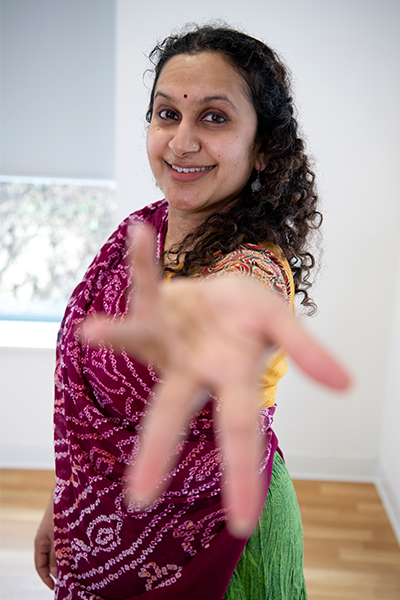
Krishna performing the Indian classical dance form Bharatanatyam and Bollywood dance styles
Krishna performing the Indian classical dance form Bharatanatyam and Bollywood dance styles
FIND OUT MORE AND JOIN US
Patients and their families are involved in the CCRH project in two groups; the Patient Network and the Patient Advisory Group (PAG). For more information on joining these groups, please visit the CCRH website.
Follow us on Twitter for news about the project and visit our website for more information.
To unsubscribe, email hello@cambridgecancer.org.uk
